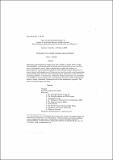| dc.contributor.author | Chambers, Robert | |
| dc.date.accessioned | 2011-04-07T13:43:47Z | |
| dc.date.available | 2011-04-07T13:43:47Z | |
| dc.date.issued | 2011-04-07 | |
| dc.identifier.uri | https://opendocs.ids.ac.uk/opendocs/handle/20.500.12413/563 | |
| dc.description | Paper for International Conference on Impacts of Agricultural Research and Development: 'Why has impacts assessment research not made more of a difference?’, Feb 2002 | en_GB |
| dc.description.abstract | The history of development is well provided with examples of beliefs which, though
sincerely held by professionals in the social and natural sciences, have later come to be
seen as ill-founded or wrong. Nine examples help to explain the tendency for
questionable and erroneous beliefs and policies to be robustly resilient. Interactions of
power, interests and mindsets, and of behaviour and experiences, play a part in generating
and maintaining myth and error. Critical epistemological awareness to offset and correct
misleading influences of professional, institutional and personal interests and orientations
is proposed for a more prominent role in good science and policy, and for enhancing the
impact of impact evaluations. Questions for self-critical reflection are proposed. The
reader is invited to improve on these. | en_GB |
| dc.language.iso | en | en_GB |
| dc.rights.uri | http://opendocs.ids.ac.uk/opendocs/handle/123456789/80 | en_GB |
| dc.subject | Agriculture | en_GB |
| dc.subject | Science and Society | en_GB |
| dc.title | Professional error, critical awareness and good science | en_GB |
| dc.type | Conference paper | en_GB |

